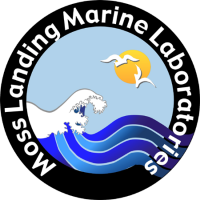Acceptable Use Policy for MLML
In an effort to protect the integrity of the MLML network and to mitigate the risks and losses associated with security threats these College Security Guidelines have been developed.
Authorized Use / Access
Access to MLML's information technology resources is a privilege granted to faculty, staff and students in support of their studies, instruction, duties as employees, official business with the University, and/or other University-sanctioned activities. Access may also be granted to individuals outside of MLML for purposes consistent with the mission of the University.
With the exception of implicitly publicly accessible resources such as websites, access to MLML information technology resources may not be transferred or extended by members of the University community to outside individuals or groups without prior approval of faculty, staff or administrator. Such access must be limited in nature and fall within the scope of the educational mission of the institution. The authorizing University official is expected to ensure that such access is not abused.
Gaining access to the University's information technology resources does not imply the right to use those resources. The University reserves the right to limit, restrict, remove or extend access to and privileges within, material posted on, or communications via its information technology resources, consistent with this policy, applicable law or as the result of University disciplinary processes, and irrespective of the originating access point.
It is expected that these resources will be used efficiently and responsibly in support of the mission of the University as set forth in this policy. All other use not consistent with this policy may be considered unauthorized use.
Copyright and Fair Use
Federal copyright law applies to all forms of information, including electronic communications, and violations are prohibited under this policy. Infringements of copyright laws include, but are not limited to, making unauthorized copies of any copyrighted material (including software, computer code, text, images, audio, and video), and displaying or distributing copyrighted materials over computer networks without the author's permission except as provided in limited form by copyright fair use restrictions. The "fair use" provision of the copyright law allows for limited reproduction and distribution of published works without permission for such purposes as criticism, news reporting, teaching (including multiple copies for classroom use), scholarship, or research. The University will not tolerate academic dishonesty (s98-1) or theft of intellectual property in any form.
Privacy of Electronic Information and Communications: F97-7
The privacy of personal and professional communications and stored information is a matter of concern in an era when the speed, capacity, and complexity of communications and information technologies are greatly expanding. The faculty, staff, and students of Moss Landing Marine Labs require and deserve a reasonable degree of assurance that their e-mail, telephone calls, voice mail, or other communications, research data, academic writing, and other electronic information are transmitted and stored on University facilities with an appropriate degree of privacy and security. No electronic system is entirely secure from unauthorized intrusions, and users are to be warned that electronic communications and information can be easily accessed by third parties. Systems administrators may inspect stored data on occasions when the integrity of the system may be jeopardized, or pursuant to legal requirements, including disclosure under the Public Records Act, discovery in civil litigation, and legal searches performed in cooperation with state and federal law enforcement authorities. Because of uncertainty about who may inspect electronic files and under what circumstances, principles concerning approved access to electronic information need to be adopted as policy and distributed to all campus users of electronic communication and information storage.
Moss Landing Marine Labs supports privacy in the use of electronic communications and information storage to the maximum extent possible under state and federal laws, consistent with computer system maintenance demands. Users of campus computing facilities are expected to use them appropriately for professional and non-commercial purposes. In general, communications and other information transmitted or stored on campus computing facilities are the property of their authors and intended recipients, and no third party other than the creator or designated recipient is authorized to intercept such information or communications, except that inspections of electronic mail may occur for the purpose of technical problem resolution, if approved by the user or the appropriate computer affairs administrator or supervisor for the resolution of a specific technical problem or suspected misuse that is believed to endanger the integrity of the computer system. All electronic mail and files in authorized accounts stored on any campus computing systems shall be considered to be private and confidential, except as required by state or federal law.
Use the link below for detailed information regarding acceptable use policy at MLML:
CENIC, San Jose State University

No Comments